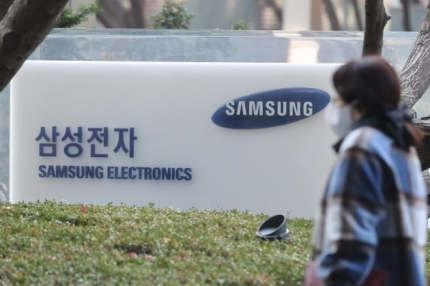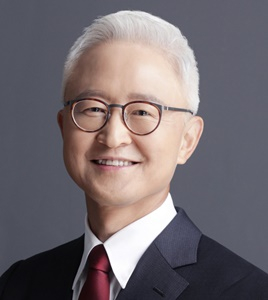Semiconductors
Winter is over? Samsung's Q3 chip sales beat Intel's
Samsung's Q3 chip shipments post double-digit growth, beating Intel's for the first time in 11 quarters
By Dec 13, 2021 (Gmt+09:00)
3
Min read
Most Read
LG Chem to sell water filter business to Glenwood PE for $692 million


Kyobo Life poised to buy Japan’s SBI Group-owned savings bank


KT&G eyes overseas M&A after rejecting activist fund's offer


StockX in merger talks with Naver’s online reseller Kream


Mirae Asset to be named Korea Post’s core real estate fund operator



In August, a Morgan Stanley report on the semiconductor industry, “Winter is coming,” fueled debate on whether chip prices were peaking out, although DRAM prices were on an upward spiral at the time.
Underpinning the research house’s bearish view, the contract price of PC DRAM chips in October suffered its biggest monthly drop in more than two years, driving down the share price of Samsung Electronics Co. to this year's low of 68,300 won in early October. That was down almost 30% from its record high of 96,800 hit in early January of this year.
Despite the chip price fall, Samsung’s third-quarter DRAM chip shipments increased 13.0% on-quarter to $21 billion, outstripping Intel's for the first time in 11 quarters. SK Hynix Inc. came third, posting 10.8% on-quarter growth to $10 billion in DRAM chip sales during the July-September quarter.
The semiconductor market grew by 7.6% on-quarter to $153.2 billion in the third quarter by sales, according to research firm Omdia. Sales of memory chips increased 12% from the second quarter, with those of NAND chips up 14% to $18.7 billion during the same period.
Moreover, DRAM prices began to rebound since the start of this month, raising hopes that winter in the chip industry is coming to a close sooner than expected.
“Demand for server DRAMs is even stronger than market projections,” said a chip industry source. “It’s because data companies are stepping up investments in servers to prepare for next year’s demand.”
PRICE DROPS IN OCTOBER AND NOVEMBER
In the August report, Morgan Stanley said that although prices were still rising, the semiconductor industry was approaching its peak because supply was catching up with demand. It expected DRAM prices would see a single-digit decline in the first quarter of 2022.
Last October, the contract price of PC DRAM chips dropped 9.51% on-month to $3.71 on average, according to market tracker DRAMeXchange. That was the biggest monthly drop since a 11.18% slide in July 2019, raising fears that the chip price might have peaked out.
The price decline was blamed on inventory adjustment by home appliance makers, a major customer group of memory chips. Further, an analog chip shortage in Southeast Asia resulted in a drop in the shipment of electronic devices.
On Nov. 22, the spot price of DRAM chips dropped to as low as $3.168, down more than 40% from this year’s high of $5.3 hit last March.
However, it capped the downward trend, rising 4% in the coming two weeks to $3.3 on Dec. 7. The spot price will be reflected in the contract price, used in transactions between companies, in the following four to six months.
Dwindling inventories were primarily behind the rebound in the spot price of chips. DRAMeXchange said the inventory level of PC and server chips declined to seven to nine weeks from more than 10 weeks.
MARKET WELCOMES TOP MANAGEMENT RESHUFFLE
Apart from the chip price rebound, Samsung's recent management reshuffle drew a positive response from the stock market. Last week, the world's largest chipmaker combined its mobile and consumer electronics divisions. It also replaced the heads of the merged division and the semiconductor business, in its biggest leadership change in four years.

As CEO of Samsung Electro-Mechanics Co., he led the electronic component maker's record-high profits last year, driven by multilayer ceramic capacitors for which the company boasts world-class technology.
Shares in Samsung Electronics closed steady at 77,100 won on Dec. 13. But that is still below Morgan Stanley’s target price of 89,000 won, revised downward last August from its previous target of 98,000 won.
Write to Shin-young Park at nyusos@hankyung.com
Yeonhee Kim edited this article.
More to Read
-
 SemiconductorsSamsung flexes foundry muscle amid supply chain woes
SemiconductorsSamsung flexes foundry muscle amid supply chain woesDec 15, 2021 (Gmt+09:00)
3 Min read -
 Corporate restructuringSamsung launches merged set division as DX; robotics new growth driver
Corporate restructuringSamsung launches merged set division as DX; robotics new growth driverDec 12, 2021 (Gmt+09:00)
4 Min read -
 Corporate restructuringSamsung’s mobile business renamed MX to highlight user experience
Corporate restructuringSamsung’s mobile business renamed MX to highlight user experienceDec 10, 2021 (Gmt+09:00)
2 Min read -
 Leadership changeSamsung reshuffles three major CEOs, combines mobile and consumer electronics units
Leadership changeSamsung reshuffles three major CEOs, combines mobile and consumer electronics unitsDec 07, 2021 (Gmt+09:00)
4 Min read
Comment 0
LOG IN


